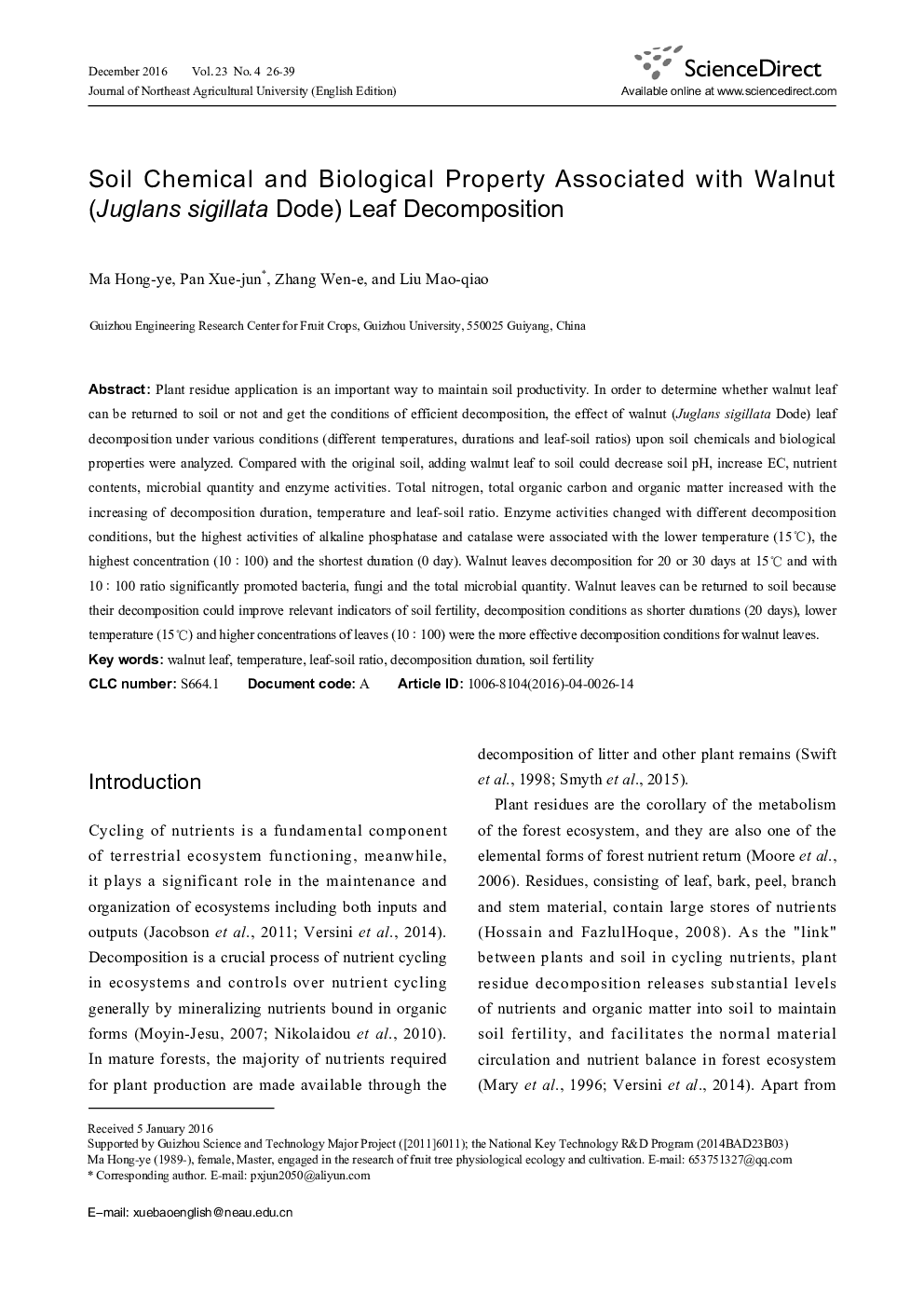| Article ID | Journal | Published Year | Pages | File Type |
|---|---|---|---|---|
| 8876239 | Journal of Northeast Agricultural University (English Edition) | 2016 | 14 Pages |
Abstract
Plant residue application is an important way to maintain soil productivity. In order to determine whether walnut leaf can be returned to soil or not and get the conditions of efficient decomposition, the effect of walnut (Juglans sigillata Dode) leaf decomposition under various conditions (different temperatures, durations and leaf-soil ratios) upon soil chemicals and biological properties were analyzed. Compared with the original soil, adding walnut leaf to soil could decrease soil pH, increase EC, nutrient contents, microbial quantity and enzyme activities. Total nitrogen, total organic carbon and organic matter increased with the increasing of decomposition duration, temperature and leaf-soil ratio. Enzyme activities changed with different decomposition conditions, but the highest activities of alkaline phosphatase and catalase were associated with the lower temperature (15°C), the highest concentration (10 : 100) and the shortest duration (0 day). Walnut leaves decomposition for 20 or 30 days at 15°C and with 10 : 100 ratio significantly promoted bacteria, fungi and the total microbial quantity. Walnut leaves can be returned to soil because their decomposition could improve relevant indicators of soil fertility, decomposition conditions as shorter durations (20 days), lower temperature (15°C) and higher concentrations of leaves (10 : 100) were the more effective decomposition conditions for walnut leaves.
Keywords
Related Topics
Life Sciences
Agricultural and Biological Sciences
Agricultural and Biological Sciences (General)
Authors
Ma Hong-ye, Pan Xue-jun, Zhang Wen-e, Liu Mao-qiao,
